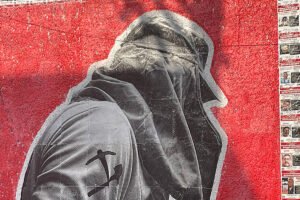May 22, 2012; Source: Pittsburgh Post-Gazette
A consortium of nonprofit groups called the Pittsburgh Public Service Fund (PPSF) is proposing a new two-year agreement with the city in which the consortium would pay the city approximately $3 million this year. Although the mayor’s office hasn’t signed off on the PPSF proposal, legislation authorizing the agreement was introduced this week. There are reportedly 41 donors in the Fund, though they are not specifically named nor are their specific pledges revealed. Among the known members are the University of Pittsburgh, Carnegie Mellon University, Highmark, the Jewish Healthcare Foundation, and Trinity Episcopal Cathedral. The Fund doesn’t include the University of Pittsburgh Medical Center (not part of the University of Pittsburgh), which is exempted because of a $100 million commitment it made to the Pittsburgh Promise program.
Sign up for our free newsletters
Subscribe to NPQ's newsletters to have our top stories delivered directly to your inbox.
By signing up, you agree to our privacy policy and terms of use, and to receive messages from NPQ and our partners.
According to a spokesman for the fund, University of Pittsburgh Vice Chancellor Renny Clark, assuming the PPSF legislation is passed authorizing the new agreement, the Fund will solicit its members regarding their specific commitments. Clark told an Urban Institute audience that the first Pittsburgh Public Service Fund commitment involved over 100 tax-exempt property owners committing a total of $14 million back in 2005. The Pittsburgh Post-Gazette reported that the second Fund plan included $2.6 million for 2010 and $2.6 million for 2011, but the city never signed off on that agreement. As a result, state government fiscal overseers rejected the City’s budget proposal because the deal for a voluntary payment from tax-exempt property owners had not been confirmed.
There are two regular epicenters for the slugfests between tax-exempt property owners who believe that they should really be treated as tax-exempt and municipal government officials who face cascading fiscal crises that can’t be solved by their current property tax revenues. One is Boston, where the city has a systematic approach for requesting purportedly voluntary payments in lieu of taxes (PILOTs) that emerged from the recommendations of Mayor Thomas Menino’s PILOT Task Force. The other is Pittsburgh, where Mayor Luke Ravenstahl has made a number of approaches to tax-exempt property owners for substantial payments. Earlier this month, the Pennsylvania Supreme Court ruled in a Pike County case that an Orthodox Jewish camp was actually taxable, with a more restrictive definition of what qualifies for tax-exempt treatment than had previously been utilized. The case arguably leads to the possibility that the City of Pittsburgh might think it has more leverage to negotiate with nonprofit property owners than it has had in the past.
Clark told his Urban Institute audience that the new PPSF plan would likely result in something like 30 institutional donors whose specific donations will not be revealed. Will the City accept this new plan? Note that the PPSF agreement never uses the term “PILOT” since the members are unwilling to acknowledge in any way that tax-exempt property owners have any obligation to pay property taxes.—Rick Cohen











